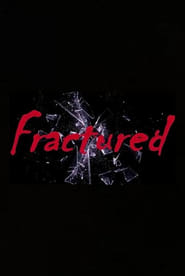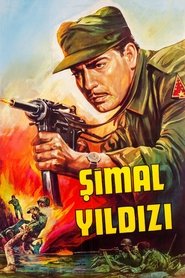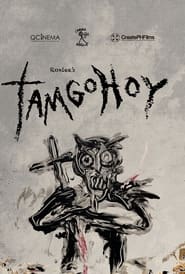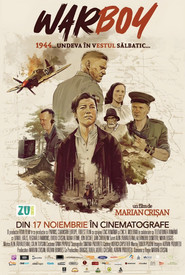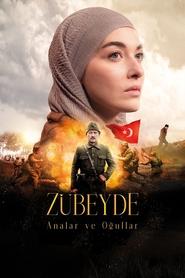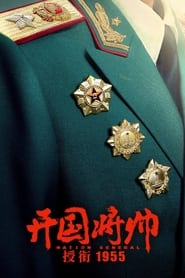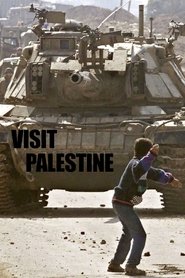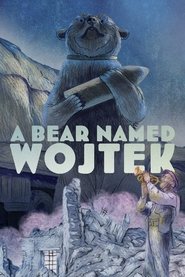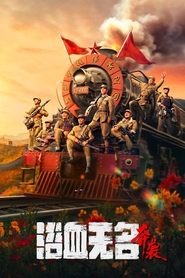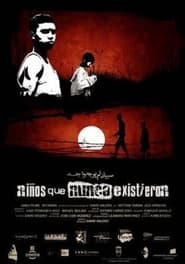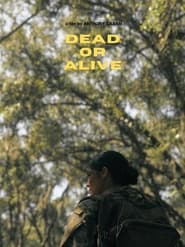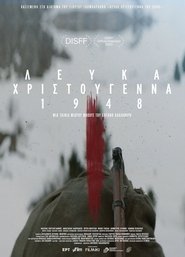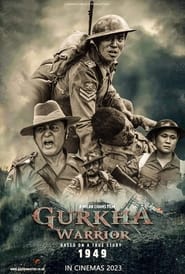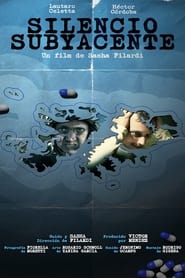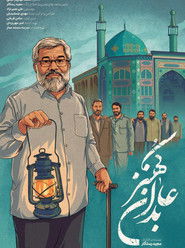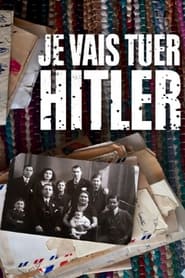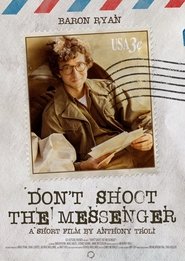Top Rated War Movies on Tub Tv - Page 298
-
Turkey Bowl 1990
0000
Turkey Bowl 1990
0000
star 10The legend of a football tradition older than the Super Bowl. A film by Jimmy Sweeney follows stars like Bird, Lloyd, Teddy, and Classman as two teams fight for the coveted 1990 Turkey Bowl title -
We Sail at Midnight
1943
We Sail at Midnight
1943
star 5A short documentary style film it depicts the story of The British obtaining a special tool from America to help with the building of a tank. -
Fractured
2020
Fractured
2020
star 10A former soldier experiences nightly trauma that forces him to re-live harrowing memories. -
Şimal Yıldızı
1954
Şimal Yıldızı
1954
star 9The film tells the story of a Turkish platoon serving in the Korean War. First Lieutenant Kemal is sent to Korea on a mission to learn the enemy's routes of operation. He sets out with a group of soldiers. They take up position at the farm of Can Bey, who lives in the area they have arrived at. The reconnaissance team discovers that the enemy is preparing for an operation. Lieutenant Kemal and his soldiers will attempt to thwart the enemy by making the necessary plans. -
Tamgohoy
2023
Tamgohoy
2023
star 3Synopsis: Dagohoy plays a flute near a river when disrupted by an ethereal voice and the tragic news of his brother's death. Desperate for a proper burial, he pleads with the reluctant Friar for blessing, leading to a disagreement and Dagohoy's injury. A kind villager found Dagohoy helplessly and tended his wound. Afterwards, a 'spirit' visited Dagohoy in his dream. The following day, they seek Tamblot, a male Babaylan and revolutionary leader, to further heal Dagohoy's wounds. While performing the ritual of renewal and baptizing the new resistance fighters, the Friar saw the traditional baptism. He disapproves and challenges Tamblot, leading to a fight. After some time, while still constantly visited by the 'spirit,' the revolutionaries prepare for a significant uprising led by Dagohoy. Their battle cry for justice signals the beginning of 85 years of revolution. -
Warboy
2023
Warboy
2023
star 10Fall of 1944. World War 2 is closing to an end. Nicu, a teenager, embarks on a journey through the wilderness of the Apuseni Mountains, trying to save the horses of his family. -
Zübeyde
2023
Zübeyde
2023
star 5Zübeyde, Mothers and Sons, tells the life of Mustafa Kemal Atatürk's mother, Zübeyde Hanim, which begins in Thessaloniki, in the last periods of the Ottoman Empire, and reflects the period until the declaration of the Republic. -
The Award of the Founding General in 1955
2023
star 10The film tells the story of the first award ceremony of 1,052 meritorious generals of the Chinese People's Liberation Army On September 23, 1955, the 22nd Meeting of the Standing Committee of the First National People's Congress decided to award Zhu De and other 10 senior generals of the Chinese People's Liberation Army with the rank of Marshal of the People's Republic of China, and they were awarded by order of the then President Mao Zedong. On September 27, 1955, the Central Military Commission issued a special telegram and announced the order to award Su Yu and other 1,038 senior officers of the Chinese People's Liberation Army with the rank of general through the general ceremony ceremony held by the State Council. These include 10 generals, 55 generals, 175 lieutenant generals, and 798 major generals -
Visit Palestine
2005
Visit Palestine
2005
star 7What drives a young, well-educated Westerner to volunteer as a “peace activist” in the Middle East? Caiomhe Butterly is one of a growing number of volunteers who risk their own safety to intervene in the long-running and bloody conflict between Israel and Palestine. Several internationals, including her, have now been injured. Some have died. In this film, she describes witnessing the aftermath of the attack on Jenin in April 2002. The film follows her work, the main emphasis being “the accompaniment of communities at risk”. Despite being threatened, shot in the leg and deported later that year, she is determined to go back. -
Song of Autumn
1983
Song of Autumn
1983
star 10Chants d’Automne (Song of Autumn), is a story of daily life on a colonial farm, at the start of the war of liberation in Algeria, describing individual and group behavior in this context. An unthinkable, even dangerous, romantic relationship, born in this context between Catherine, daughter of a settler, and Abdelmalek, son of a blacksmith. Managing his vast property in a feudal manner, Monsieur Marcel whose only ambition is his personal enrichment to the detriment of the community. Everyone fears his authority except his daughter Catherine, a student in France, who returns home during the holidays. She does not stop herself from expressing to him her ideas of justice which go against family and colonial practices. Catherine and Abdelmalek's romance makes relationships increasingly strained, but the call for freedom will be stronger than a woman's love. -
A Bear Named Wojtek
2024
A Bear Named Wojtek
2024
star 10Displaced by the Second World War, a troop of Polish soldiers form an inseparable bond through an orphaned bear they name Wojtek. -
Blood on the Nameless River
2023
star 4During Korean War Chinese veteran Du Chuan was ordered to reorganize the reconnaissance platoon to carry out the mission of raiding deep behind enemy lines. In order to survive the main force, the Volunteer Army's third reconnaissance platoon risked their lives in the attack, forged with fearless courage and the belief of living towards death. A Great Wall of flesh and blood was erected to block the enemy's torrent of steel. -
Dead or Alive
0000
-
White Christmas 1948
2023
White Christmas 1948
2023
star 4In December 1948, an unofficial truce between the Democratic Army and the National Army enables the soldiers to share a human, touching moment before returning to the barbarous reality of the eternally divided Greeks. -
Gurkha Warrior
2023
-
Underlying Silence
2023
Underlying Silence
2023
star 10An ex-combatant is admitted to a psychiatric facility due to what happened in the Falklands War. During his stay in that institution, he will find a purpose to fight against the treatments that tend to harm him. -
Abedane Kohanz
2018
Abedane Kohanz
2018
star 10"Aebadane Kohanz" is the narrative of the upbringing, prosperity and growth of the teenagers of Amir Al-Momineen Mosque Kohens Shahryar, who were actively present in the important events of the Islamic Revolution. -
Je vais tuer Hitler
2023
Je vais tuer Hitler
2023
star 9One day, in Savigny, an 18-year-old boy left his house in the middle of the war, saying: "I'm leaving, I'm going to kill Hitler." His name was Joseph, he was Jewish, he was my great-uncle. He disappeared during the night of the Occupation, and his existence became a family secret. He disappeared from history, the small as well as the big: he is not on any deportation list, and the only archive where he appears is a family photo of him as a child. It disappeared like a stone at the bottom of the water, instead of going up in smoke in the sky of Poland. What did he become? And why didn't anyone mention his name anymore? -
Don't Shoot the Messenger
2023
star 2A World War II romantic comedy, following a nosy army postman who secretly rewrites the letters between a soldier and his wife in an effort to save their crumbling marriage.
 Netflix
Netflix
 Amazon Prime Video
Amazon Prime Video
 Apple iTunes
Apple iTunes
 Apple TV Plus
Apple TV Plus
 Disney Plus
Disney Plus
 Google Play Movies
Google Play Movies
 Paramount Plus
Paramount Plus
 Hulu
Hulu
 HBO Max
HBO Max
 YouTube
YouTube
 fuboTV
fuboTV
 Peacock
Peacock
 Peacock Premium
Peacock Premium
 Amazon Video
Amazon Video
 The Roku Channel
The Roku Channel
 AMC+
AMC+
 Kocowa
Kocowa
 Hoopla
Hoopla
 The CW
The CW
 Vudu
Vudu
 Starz
Starz
 Showtime
Showtime
 PBS
PBS
 Pantaflix
Pantaflix
 FXNow
FXNow
 Tubi TV
Tubi TV
 Kanopy
Kanopy
 Comedy Central
Comedy Central
 Crunchyroll
Crunchyroll
 Microsoft Store
Microsoft Store
 Redbox
Redbox
 Sun Nxt
Sun Nxt
 ABC
ABC
 DIRECTV
DIRECTV
 Crackle
Crackle
 Fandor
Fandor
 Plex
Plex


